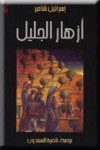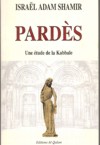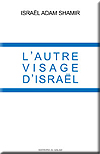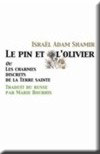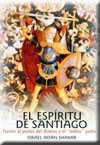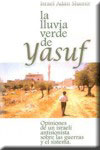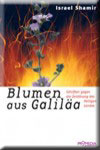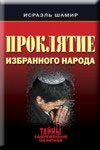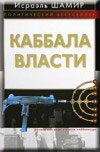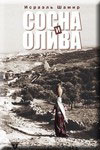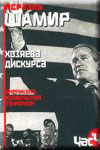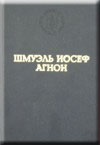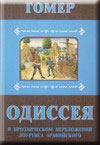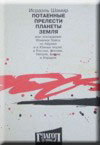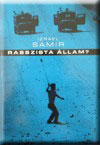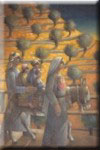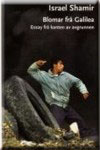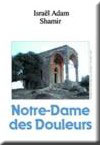Poet Ezra Pound, an American Giant [1]
By Tom White
Idaho-born writer Ezra Loomis Pound (1885-1972) delved into the poetry of the West with fantastic energy and intensity from his school days on. He studied for two years as a “special student” at the University of Pennsylvania, starting when he was only fifteen years old, then went on to Hamilton College in New York State, where he took his bachelor’s degree. He then returned to the University of Pennsylvania, receiving his Master of Arts degree in Romance philology in 1906. After an initial college teaching job in Indiana that he lost in less than a year, I think he never again held a “9 to 5” job of any kind. He moved to England in 1908, He was from then on focused on poets and poetry that “added something new,” first, to the European poetic canon, and then to world poetry. His learning over seven decades is encapsulated in his great work, The Cantos, meant as a guide drawn from the human past “to teach, move, and delight” his contemporary and future readers (ut doceat, ut moveat, ut delectet in a famous medieval formulation).His studies in ancient Greek, Latin, and Provencal poetry and in Anglo-Saxon verse, 19th century French literature, Chinese poetry, Confucian learning, and so on, which have proved so fascinating to scholars all over the world, have tended to somewhat obscure the fact of his unflagging interest in that magic 1,000 years between c. 410 A.D. and c. 1410 A.D., the period that Culture Wars editor and publisher, E. Michael Jones, has called the millennium of the “Rule of Christ,” and which post-Enlightenment writers denigrate as the “Dark Ages.” It was in this period, and in the Christian Mediterranean culture, that Pound found the arts and intellectual traditions that were most congenial to him.
It was in this stretch of time and culture that Pound found the Provencal poets and the later Italian poets, Cavalcanti and Dante, who were for him high water marks of genuine poetic art and true culture. And in this same period he found the Christian philosophical stress on (economic) justice for all, which led him to reject the whole post-Calvin usurious society of the last 500 years and adopt the uncompromising view of Aristotle and Thomas Aquinas that usury, the taking of interest on money, is theft, sin, a monstrous evil that over time will destroy society and life itself.
I don’t know of any reference to Thomas Aquinas in Pound; he perhaps never read all, or even much of, Thomas’s Summa; but he was saturated in the cast of mind it summarized and applied to the whole of Christian moral and spiritual life. Thomas’s taste for philosophical abstractions was not Pound’s, but Thomas’s taste for truth, order, and fair dealing was exactly his.
Pound’s position on usury, so opposed to the developed modern sense of commerce and banking, is given in many places in his work, but most monumentally in Canto XLV, I believe the longest poem on usury in the language, and certainly the most mordant and beautiful treatment of this gross evil and its effects on human life. I wish I could reproduce it here, but better to send you to the text itself, which, after all, is the whole purpose of this article.
The Money Theme
"Sovereignty rests in money. The United States Constitution is the greatest state document yet written, because it alone of them all, clearly recognizes this power and places it in the hands of congress. . . . The basis of the state is its economic justice."
—Ezra Pound in Guide to Kulchur, page 270
To write about Pound is to attack the proverbial mountain. He lived 87 years, published more than 60 books, and was involved in enough controversy for any ten men, maybe any hundred or even thousand men. His major interests or concerns were, above all, world poetry and, then, economic, social, and political theory and practice, especially the age-old scourge of usury. He viewed our present money system as radically evil, and destructive of economic and social justice.Taking on the world the way Pound did is a tall order, you will agree. But Pound always kept his view, his angle of approach, personal: what has this or that individual writer written; what has this or that particular financier or politician done, what, indeed, was he, Pound, doing, what impact was he having on his friends? Until very close to the end of his life, Pound had a touching faith in his ability to persuade others of the truth of what he believed—he knew—to be true. Why, all you have to do—is it not?—is set out the true facts in a case, present them well (Pound knew how to do that), and surely no one can deny the point of them? Of course, people in droves can deny the truth. Pound also knew that perfectly well; he was no naïf; but he chose never to give up.
This approach worked astonishingly well when he was trying in friendship to show other writers, and even other kinds of artists—sculptors and musicians—what he had learned and what they might learn from him. As Eustace Mullins, a biographer of Pound, has pointed out, there were four men, all Pound’s friends, who won Nobel Prizes and whose writing Pound heavily influenced, Yeats, Eliot, Joyce, and Hemingway. Pound himself, of course, never got the prize.
I particularly like to recall something James Joyce said about Pound, who was instrumental in getting Ulysses published and getting Joyce money to live on when he needed it most: “We all owe him much. I most of all.” Such encomiums of Pound—Eliot called him the “better maker” in his dedication of “The Wastelands” to Pound—were offered up in profusion by people he called friends. Pound heavily blue-penciled “the Wastelands, into the final version the world now knows as the most famous long poem in English of the last century. The “power people,” on the other hand, hated him and his work and still do.
Antisemitism
I should have liked to begin this overview by talking of Pound’s massive contributions to world poetry. And I definitely wanted to discuss his work on usury (defined simply as the taking of interest on money loans) and his sense of the urgent need for local and non-usurious money. But I think it is not yet possible to begin an introduction to Pound by climbing either of those slopes on the mountain.
Instead, I believe we simply have to deal first, after some fashion, with the whole question of Pound’s “antisemitism” (I prefer this simpler spelling to the standard “anti-Semitism”); because the charge against him that he was a vicious antisemite refuses to die—and refuses, too, to become any sort of minor note in his biography. Probably nothing that I can do will help it to die. The accusation of antisemitism turns up over and over again; it gets into every discussion of him or his work. It is the standout sub-theme of his biography on Wikipedia (http://en.wikipedia.org/wiki/Ezra_Pound); a document worth reading despite that, since much of what it covers will not be dealt with here.
I recall standing in the lobby of a hall at the intermission of a symphony concert a couple of years ago talking to several people I knew, including an assistant professor of English at our local university (not incidentally, she was Jewish). We were talking about something having to do with writing or reading, and I sensed a chance to insert a test question that I occasionally use in talks about such matters. I find it a way to get a quick reading on where someone fits along a sort of a spectrum of sophistication in modern letters. I asked, “What do you think of Ezra Pound?” “He’s crazy,” she snapped back. A lot said in two words: since Pound was long dead, this was not so much an opinion of his character but of his work, all of it. “Crazy.” I let the subject drop. Not the place for a harangue. And I knew it would be that or nothing.
About all I can expect is to persuade a few people, willing to bother with a “poet” at all, that this poet was a giant among men. The accusation that he was a Jew-hater is, I believe, simply not true. It is a total canard. What is true is that he said some very unpleasant things about “bankers,” while emphasizing that many, if not all, of the biggest of them were Jews, about whom, in the context of their being “Big Jews,” he also said some harsh things. Pound, who was dedicated to clarity of communication if to anything, used vivid (that’s an understatement) terms to speak and write. A quote from one of his early 1940’s broadcasts from Rome is in the Wikipedia article (page 4):
The big Jew is so bound up with this Leihkapital that no one is able to unscramble that omelet. It would be better for you to retire to Derbyshire and defy New Jerusalem, better for you to retire to Gloucester and find one spot that is England than to go on fighting for Jewry and ignoring the process. . . . You let in the Jew and the Jew rotted your empire, and you yourselves out-jewed the Jew. . . . And the big Jew has rotted EVERY nation he has wormed into.”
An aside: as a writer I admire the way E. Michael Jones, publisher of this magazine, eschews precisely the kind of “bad language” that Pound employed in his attacks on the usurers over the radio from Rome, and in print in a lot of places when he was writing about economic crime and folly.
I do not presume to dictate “literary manners and morals” for anybody; nor would I presume to chide or rewrite Pound. But for myself, I think the day for scurrilous personal attacks on any enemy has gone by. To do that is precisely to copy “the Jews” in their accusations of antisemitism. The Christian rule, as I understand it, is always to blast the crime with maximum decibels, but love the criminal and seek his reform. A tough dictum, but it is also dominical, and I have (I hope) given over improving on the Lord.
As things stand now, the endless repetition of “Pound is an antisemite” serves principally to assassinate his reputation as America’s most astonishing, rewarding, and influential 20th century poet. It serves, as well, to obscure and fend off facing the real point at issue: was he right or wrong that usury was a civilization-wrecking, nation-wrecking practice? And was he right or wrong that the use of usury to exploit and ultimately destroy nations and civilizations was an ancient Jewish practice, done in plain defiance of the prohibition against usury in the Torah, with an end in view, finally, of the rule of the whole world, by means of usury, by the “Big Jews.” (In all of this discussion, I am assuming that most Jews, like most of everybody else, are pawns and serfs of the Money Masters—the superbankers.)
Pound was clearly saying that indeed there was a “conspiracy” of the few to steal the wealth of all. Well, is it true or not? That’s the only question in this whole money matter that is worth discussing.
The Usury Gimmick
Pound’s writings on usury amounted to a direct attack on the central mechanism, the “primary gimmick,” that “the Jews”—again, the “Big Jews,” the ones who “organize” and have the superbig money—have used to fund, isolate, and advance their tribe in the world for a very long time. (Some would say since the Babylonian Captivity or even before that; Canadian David Astle, in an extraordinary study of the sources, nature, and relationships of currencies from antiquity to the present says just that in his Babylonian Woe: A Study of the Origin of Certain Banking Practices and of their effect on the events of Ancient History, written in the light of the Present Day (A private edition published in 1975 by the author and printed by Harmony Printing Ltd, Toronto).
And as Kevin MacDonald has shown in a number of scholarly volumes, the one thing Jews have done historically above all others is maintaining themselves as a separate people. They do it today, even while many phalanxes of Jews also establish themselves as citizens of many other nations. They have done this notably in the U.S in the last 150 years as they had done in the two preceding centuries in Northern Europe. Their mode of operating, again above all, includes arranging, with remarkable skill, brilliance, and effectiveness, that wherever they gain power and wealth, everything that goes forward is, as much as they can manage and that is usually very much, “good for the Jews.”
The foregoing sentences would be certain to earn me a place among the ever-burgeoning number of “antisemites” on the character-assassination attack list, if I were anybody of consequence. It’s even a badge of honor to be so designated—“up to a point,” as Evelyn Waugh has one of his characters in one of his novels say when trying to gently disagree with his egomaniacal boss, without exactly disagreeing with him.
The “Swarm”
When the word goes out that so-and so is “bad-for-the-Jews” the “swarm” goes into action. What is the swarm? Let us borrow Israel Adam Shamir’s language here. Shamir is a Russian native, an ex-Jew, now an Orthodox Christian, and a resident of Jaffa in Israel, a state he believes should be one nation, with a one-man, one-vote system, and with right of return for all Palestinians. (The present writer discussed him and reviewed one of his books in an article, Pardes: A Study in Cabbala, in the Sept. 2005 issue of Culture Wars):
After [U.S. ex-President] Carter spoke [making the point that Israel is an “apartheid state”], he was immediately counter-attacked by organized Jewry—you couldn't miss it! In my native Siberia, in its short and furious summer, you can watch a swarm of gnats attack a horse, each small bloodsucker eager for his piece of the action. After a while, the blinded and infuriated animal rushes headlong in a mad sprint and soon finds its death in the bottomless moors. The Jews developed the same style of attack. It is never a single voice arguing the case, but always a mass attack from the left and the right, from below and above, until the attacked one is beaten and broken and crawls away in disgrace.
Each attacker is as tiny and irrelevant as a single gnat, but as a swarm they are formidable. Observe them separately: Dershowitz, an advocate of torture and of hostage killing, an apprehended plagiarist who never was elected to any position of authority and commands no respect, demands to debate the president. It is indeed beyond chutzpah; but Dershowitz is supported by other Jews in prime positions and his ridiculous demand is seconded by both university and media until this thieving nonentity gets equal time on a TV channel to present “his case”. Another gnat is a Deborah Lipstadt, a nonentity brought forth by the Washington Post. Plenty of others are even smaller than these two, for instance 14 Jews who gave up their positions at Carter Center. If they were not able to keep the media in their hands, they wouldn't be heard by anyone but their spouses.
Their technique is quite simple: They switch the focus of argument onto the personality of their adversary. Thus, instead of discussing apartheid in Israel, we discuss Jimmy Carter, whether he is a bigot and antisemite (thus Foxman, the “bad Jew”) or he is not (Avnery, the “good Jew”). The correct answer is “irrelevant”: Carter’s love for Jews or lack of it has no bearing on the question of apartheid in Palestine. Likewise, if we discuss the situation in Bosnia or Kosovo, we do not go into our sentiments towards Serbs, Albanians or Croats. But Jews are different!
For instance, General Wesley Clark said that rich Jews, the great donors of Washington politicians, push for war with Iran. Well, this can be discussed, maybe even denied, but instead they derail the discussion into another topic, whether Clark is an antisemite . . .
From this moment, Clark will stick to defending himself, and the guys will take care that his hands will be full. Here again, the correct answer is a polite shrug: who cares whether Clark is a bigot? Maybe he is also a paedophile and usurer, but this ad hominem has no bearing on what he said. And an accusation, “You do not love Jews” is not much different from “You do not love your aunt”, and you probably have learned to live with it at the age of six.
(From http://www.israelshamir.net/English/Eng9.htm)
The charge of antisemitism has dogged Pound since he began to study “the economic causes of warfare” immediately after World War I. But I here submit, as Shamir suggests, that the charge of antisemitism against Pound is supremely irrelevant.
Control of Media
One of the principal Jewish tactics directed to making themselves “Masters of Discourse” (Shamir’s term), has been to buy up the “major media” and so control what and how events or news are disclosed to the public. The fact of that in America is now common knowledge and is even bragged about by various Jewish writers.
The recent “outing” of AIPAC, the America-Israel Political Action Committee by Professors Mearsheimer and Walt, not to mention the extraordinary work of the publisher/editor of this periodical, has pushed along an emerging freedom from “fear of the Jews,” but it has so far progressed only a little, because “fear of the Jews” is no joke in politics or writing or teaching (especially at the university level). Ask Joseph Sobran, whose career as perhaps the most intelligent and articulate American-Catholic commentator on our politics was derailed by his mild but very public criticism of the Jews. Pat Buchanan has survived, but only after a fashion, after similar “indiscretions.” Neither man has any chance of great influence anymore. The list of people who have disadvantaged themselves in this way could be much enlarged. The latest addition to it is of course ex-president Carter.
Incarcerated nearly 13 years
Ezra Pound was a virtually archetypical case of this same Jewish attack on free speech that was, from their point of view, radically too free. He paid for it. Initially charged with treason, he spent 12-1/2 years (1946 to 1958) in St. Elizabeths federal mental hospital under a diagnosis of insanity made by a panel of psychiatrists who examined him in 1946. It seems obvious that the psychiatrists involved thought it not a good idea to let the nation’s major poet be tried for treason; the insanity finding seemed a way out of the dilemma.
That diagnosis denied Pound a trial on the charge of treason against him, a trial Pound plainly wanted since he believed he could rebut it. However, the “nuts” designation effectively kept him in prison-hospital all those years. No one with any sense ever thought Pound was “insane.” The work he did in the prison camp in Pisa and in St. Elizabeths precludes that. On the other hand he was radically stressed by the trouble he brought on himself and surely had some very bad days.
The major media largely kept up the attack on him as a traitor while he was in prison, until at the last, important articles in Life and Time Magazines, then owned and edited by Henry Luce, initiated a “let him go” attitude. Pound would accept release only on condition all charges against him were dropped. In order to let the government get rid of this hot potato, the government agreed. The charges were dropped, and he was released—to return to Italy, where, in Venice, he died and was buried.
The bald external facts of Pound’s fateful years in Italy until he was flown back to the United States in military custody would seem to a superficial observer to be prima facie evidence of the validity of the U.S. government’s case against him. He had been living in Italy seventeen years when the U.S. entered Word War II. He tried to book passage home for himself and family members but for complicated reasons was not able to do so. He had opposed the war from the start, and opposed it to the end. In 1943 he asked the Mussolini government for permission to go on Rome Radio—and was granted it—to present his anti-war case, in English (often in a kind of cracker-barrel jargon of his own). He directed his broadcasts to the Allied governments and their troops as they approached ever nearer.
He was harshly critical of President Roosevelt and made anti-Jewish points repeatedly. The broadcasts were often enough difficult to understand; they very likely were never heard by many, or perhaps even any, people in the U.S. Pound’s central theme was that the U.S. was serving the Jewish/British/American world-wide banking cabal by attacking and destroying Europe, an idea he had developed, defended, and extensively explicated from the 1920s on. Just after WW I he wrote that he had begun a systematic study of the “economic causes of warfare.”
The conclusion he came to was that the “bankers” and their universal usury were chiefly at fault, not just for wars, but for the general economic malaise of Western societies that had prevailed, really, since the close of the Christian medieval, anti-usury era, at just about the same time as the early 16th century “Reformation” occurred, and John Calvin declared that business men should be permitted to charge interest on money loans, something the Roman Church had opposed all during the previous millennium, as E. Michael Jones’s articles on the Revolutionary Jew make clear.
World War I, and the death of so many of his artist and poet friends in it, had both deeply saddened and challenged, even enraged, Pound. He had already demonstrated before he left England for France that he was a dynamic, brilliant poet and scholar, who was working on nothing less than making a revolution in the whole nature and course of poetic expression in the modern era. He worked at that as hard as a good scientific researcher works. He became from that time on, while remaining a dedicated poet, also a devastating and relentless critic of the murderous policies of the industrially advanced national governments of the Western world, which had caused the needless deaths of millions of young men in the Great War of 1914-1918, the “war to end war,” a civilizational disaster repeated in WW II:
“There died a myriad,
And of the best among them,”
For an old bitch gone in the teeth,
For a botched civilization.
Charm smiling at the good mouth,
Quick eyes gone under earth’s lid,
For two gross of broken statues,
For a few thousand battered books.
—“Hugh Selwyn Mauberley,” 1920
“Hugh Selwyn Mauberley” (1919) and “Homage to Sextus Propertius” were the two major poems that closed out his fourteen years’ residency in England (1908-1922). He moved to Paris in 1922 and never again lived in England. After that, his major poetic effort went into his Cantos, a work it is hard not to see as his response to the challenge of Whitman’s great Leaves of Grass. Both were accumulations of verse over many years, massive “works in progress” that took most of their authors’ poetic energies until the near approach of death. The works were comparable in those ways, although utterly different in form and content. Initially, Pound, who, in his youth tended to like rather allusive and esoteric forms and themes, disliked Whitman’s democratic “yawp” and sprawl. As Pound matured, though, he wrote:
“I make a pact with you, Walt Whitman—
I have detested you long enough. . . .
We have one sap and one root--
Let there be commerce between us.
Joined now in death, it is plain that Pound and Whitman are “the two great American poets.”
As I come toward the close of this essay, the text of a speech on U.S. foreign policy and civil liberties by Justin Raimondo has just come to hand. It appeared June 4 on the website antiwar.com, which Raimondo directs. In it Raimondo, who strenuously opposes Israeli influence in U.S. foreign policy and internal politics, manages a very curious distinction. He speaks against AIPAC, against the neoconservative (largely Jewish) party in Washington, and in favor of Professors Mearsheimer and Walt, whose famous “taboo-busting” study, The Israeli Lobby and U.S. Foreign Policy, has made such a stir, and of course been attacked by “the Swarm.” Then Raimondo makes the (to me) astonishing statement, without supporting reference, that the views of the Israeli Lobby and those of “most American Jews are poles apart.”
I am unaware of any study or poll proving such a point or of any Jewish organization expressing it. I am aware of many individual Jews who oppose the Lobby and even Zionism, but a financed, organized, and well-publicized group doing so? I don’t think so. I believe the burden of lifting the banker-usury yoke from the shoulders of mankind is destined, as Shamir has suggested, to be borne by Jews; but the hour seems not yet, because a complete change of heart among “the Jews” is obviously a prerequisite.
What, then, are we to do? Just now very little. We are forbidden hatred and violence by the Lord. Anyway there is very little indeed that can be done against the entrenched power of the statist institutions that now stand against any alteration in the status quo of our usurious, banker-ruled society. Christ’s demonstration on Calvary is our model. Not a hand is to be raised against “the Jews,” as the popes have repeatedly said across the centuries. But we have also been told by the Lord Christ that we are to be wise as serpents. Nonviolence and wisdom are the only tools we have for this battle. I submit that Pound offered much wisdom about money and the evil of usury; in fact he cast his whole life and work into the balance to make that wisdom known to as many of his countrymen as possible. In an echo of a famous little poem by Walter Savage Landor, he wrote in an ironic epitaph for himself. “I strove with all, for ALL were worth my strife. . . .”
The Pound canon is now enormous; any halfway decent library will have quite a few titles by or relating to Pound. He said himself the clue can be got in an afternoon; I found that so in 1950 sitting in a library in Cambridge, Mass. an afternoon that I have never forgotten.
[1] Reprinted with permission from the July-August 2007 issue of Culture Wars Magazine. Web: www.culturewars.com Mail: Culture Wars Magazine, 206 Marquette Ave., South Bend, IN 46617.



